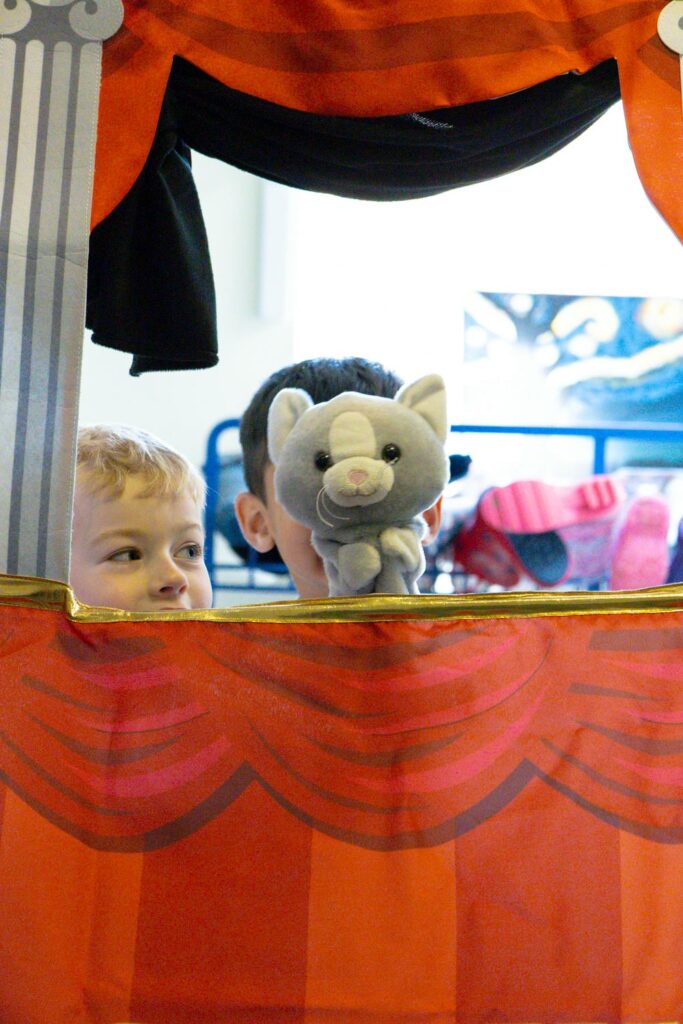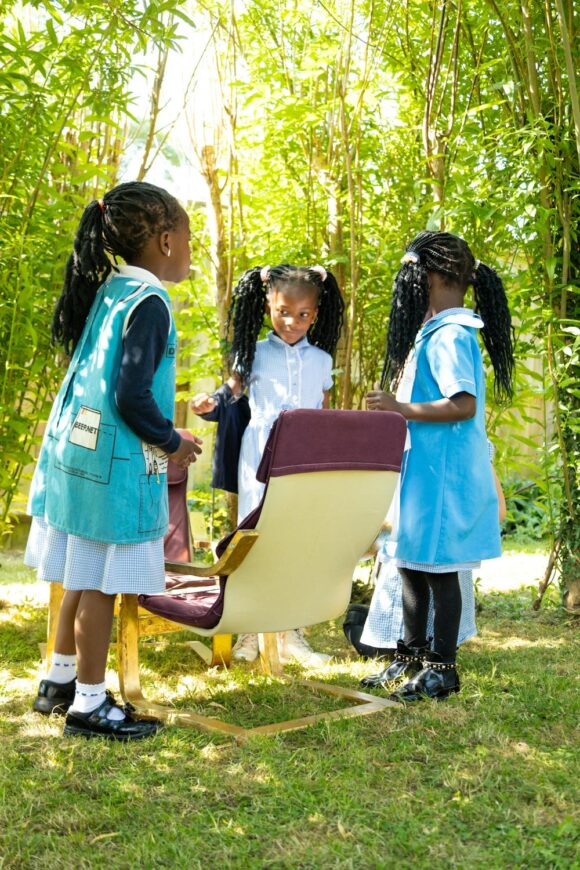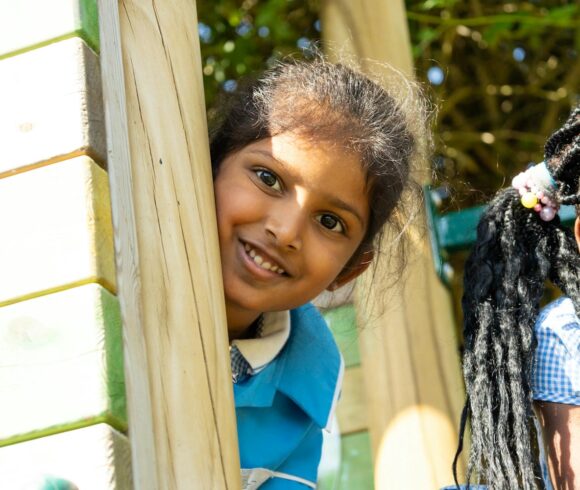EYFS Reception Curriculum
At St Anne’s Catholic Primary School, the early years are recognized as a crucial period in a child’s development, laying the groundwork for future success. The school is committed to providing a nurturing and stimulating environment within its Early Years Foundation Stage (EYFS) that fosters a love of learning and prepares children for their educational journey ahead.
The EYFS curriculum at St Anne’s is designed to cultivate independence, self-motivation, resilience, and the ability to embrace challenges. Through play-based learning and carefully planned activities, children are encouraged to explore, experiment, and develop essential skills in a fun and engaging atmosphere. The school aims to create an environment so rich and supportive that every child can thrive, reaching their full potential.
A key feature of the EYFS program is the close working relationship between Reception and Nursery. This ensures a seamless transition and continuity in learning, allowing children to build upon their existing knowledge and skills as they progress through the foundation stages.
St Anne’s understands the profound impact early learning experiences have on a child’s physical, cognitive, emotional, and social development. Building strong, secure relationships with children and their families is paramount. This allows educators to gain a deep understanding of each child’s individual needs and interests, maximizing learning opportunities tailored to their specific requirements.
The school’s commitment extends to providing a rich and varied curriculum that supports learning, consolidates knowledge, and ensures children are well-prepared for their next steps. Both indoor and outdoor learning environments are meticulously planned to cater to diverse learning styles and encourage exploration.
The ultimate goal is to equip children with the knowledge and skills necessary to achieve the Early Learning Goals at the end of Reception. The school strives to ensure that every child makes significant progress from their individual starting points, setting them up for success in Key Stage 1 and beyond.
St Anne’s Catholic Primary School believes that the experiences children have in their early years have a lasting impact. By investing in optimizing early education, the school is committed to providing its pupils with the best possible start, equipping them with the foundation they need to flourish and achieve their full potential in the years to come. The focus on building a secure foundation through stimulating learning and strong relationships signifies a dedication to nurturing confident, capable, and happy learners ready to embrace the challenges and opportunities of the future.

Intent
Our Intent is our curriculum, our plan of what we are going to teach. The Early Years Foundation Stage (EYFS) (Educational Programmes) provides the curriculum framework that we have built upon to decide the skills, knowledge and attributes we aim for children who attend our school to learn and develop at various determined points across the Seven Areas of Learning. In Reception, this builds upon the Prime Areas of Learning and increasingly focuses on the Specific Areas of Learning but with a particular continued emphasis on children’s Communication and Language needs. Priority is given to developing children’s early maths and literacy with a robust approach to the teaching of phonics and application to early reading development. Our curriculum aims to be met through a balance of child initiated and adult-led learning – a hybrid educational approach; bringing together the best methodologies with carefully planned continuous provision and an enabling environment – both in the classroom and in the outdoor area – that evolves to meet the needs of our cohort. Throughout their time in our reception classes, children will build the foundations for lifelong learning where they develop into confident, resilient, curious, independent, social, questioning and happy children. The children are supported to develop in their characteristics of effective learning through praise and encouragement at trying new activities and experiences, developing focus, concentration, and enjoyment, and supporting their ideas, thinking and strategies.
Implementation
Children have many opportunities to learn through free play in well-resourced indoor and outdoor environments. During this time, the children benefit from adult interactions and modelling where children are shown how to do things through modelling, and being introduced to new experiences and vocabulary. Children have opportunities to enjoy uninterrupted play which is still an essential tool in developing their social skills and brain development: “Play has been found to have a significant influence on neuroplasticity, particularly during critical periods of brain development in early childhood. When children engage in play, their brains are actively forming new neural connections, strengthening existing pathways, and refining important cognitive functions.” The school day in our reception classes is structured with short 10 – 15 minute teacher-directed activities on the carpet. There is a gradual build-up to 4 of these a day which include, R.E, Phonics, maths, and English (shared reading & writing) and they incorporate other curriculum areas such as Understanding the World and Expressive Arts and Design. As soon as the children are settled, they begin phonics sessions and will learn four sounds per week. They will also learn to read and write words, and then sentences, during these sessions, and these skills are also practised during individual and small group reading sessions, as well as support interventions when needed. In addition to phonics, children have opportunities to develop their oracy skills, and quality texts and pictures are used during literacy lessons which focus on developing the children’s reading and writing skills such as inference, text structure and punctuation. Children have daily maths lessons based on the topic of the week (following the small steps White Rose Mastery for Maths planning) and also maths meetings, during which they practise and recap basic counting, shape and pattern skills. The core and foundation subjects are taught through fun and engaging hands-on activities and continuous provision throughout the indoor and outdoor areas where children practise and consolidate the learning that they have begun in their adult led carpet sessions.
Catholic Ethos, Catholic Social Teaching phonics
At St Anne’s our Catholic ethos is the heart of everything we do. Rooted in Gospel values, we nurture a loving and inclusive community where every child is encouraged to grow in faith, wisdom, and compassion. Guided by Catholic Social Teaching, we inspire our students to uphold dignity, justice, and service to others, fostering a strong sense of moral responsibility and global citizenship.
As a Catholic school, Religious Education is central to our teaching and learning and forms a large part of our EYFS curriculum. In addition to teacher led sessions following the whole school scheme ‘Learning and growing as people of God’ the children are encouraged to explore the themes and stories of lessons through Godly Play (which is a play based movement which centres on developing the child’s innate sense of God’s presence and promotes life-long Christian learning). Through our faith and our teaching, we aim to develop the whole child—spiritually, academically, and emotionally.
Impact
At St Anne’s our high-quality, child centred provision ensures that all children develop strong foundational skills. Through a consistent, structured, and engaging continuous provision and adult input and intervention our pupils achieve their potential and make excellent progress.
This robust approach to assessment ensures that no child is left behind. As a result, children grow in confidence, develop a love of learning, and acquire the essential core skills that support success across their school journey and beyond.
As a result of our robust curriculum and Catholic ethos, our Reception children
- Demonstrate Confidence: Engage actively in learning, expressing ideas and asking questions with assurance.
- Show Compassion: Exhibit kindness and respect towards peers, reflecting the teachings of Jesus in their interactions.
- Achieve Milestones: Reach key developmental and academic milestones, preparing them for the next stage of their educational journey.
Through our commitment to a holistic education, we ensure that each child not only excels academically but also grows spiritually and socially, embodying the values of ou


